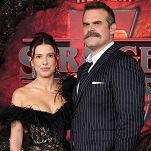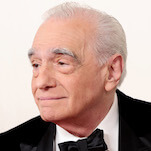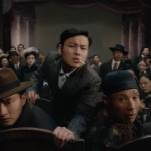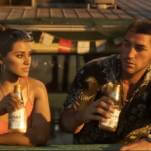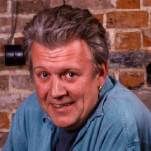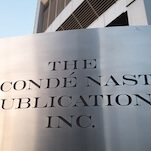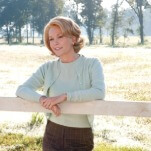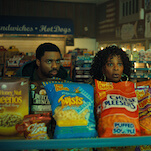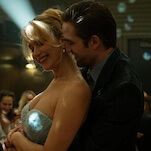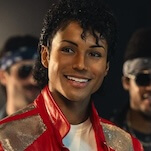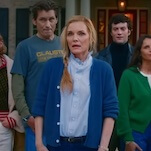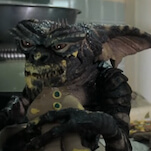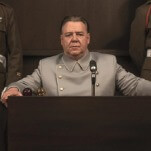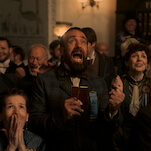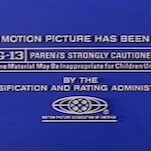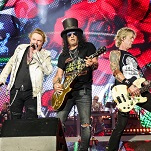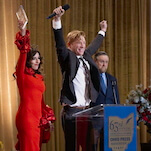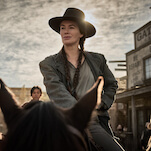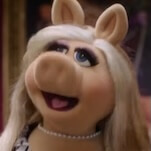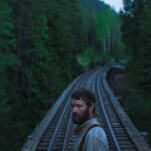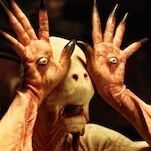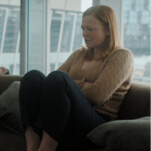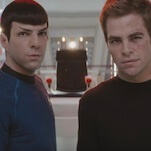Last Days Of The Space Age is a family drama spiked with political history
In the ’70s-set Hulu miniseries, a Skylab crash, Miss Universe pageant, and labor strike hit Perth, Australia
Photo: Hulu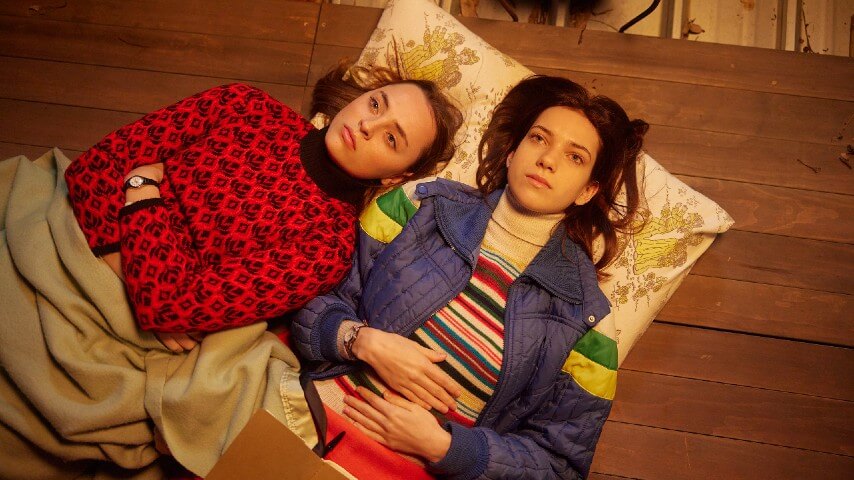
“Nothing is changing!” beleaguered mom Judy Bisset (Radha Mitchell) exclaims in the first episode of Last Days Of The Space Age before bursting into tears because everything is, in fact, changing in 1979 Perth, Australia. Beyond the conventional domestic stresses of her two teenage daughters being a lot to handle, her husband Tony (Jesse Spencer) has been on strike for months, leaving the family on the brink of financial ruin and pushing her to become more of a career woman than she wanted to be. That same strike is causing rolling blackouts, disrupting the isolated coastal city as it’s getting international attention for hosting the Miss Universe pageant. Oh, also, NASA’s Skylab space station is about to crash nearby.
It takes four of this Hulu miniseries’ eight episodes (only the first half of the show was made available to critics) for that last hook to come to the forefront. Last Days Of The Space Age builds slowly, weaving together so many characters and their stories that, at first, they can feel thin and disconnected. But everyone and everything comes together in episode three for a hilariously disastrous celebration of the 150th anniversary of Perth’s founding, demonstrating the strength of a show that’s simultaneously nostalgic while also clear eyed about the inequities of the past that are still relevant today.
And there are a lot of those. The Bissets’ elder daughter Tilly (Mackenzie Mazur) is obsessively pursuing her dream of becoming an astronaut and dragging her best friend Jono Bui (Aiden Du Chien) along for the ride, even though her high-school guidance counselor/gym teacher thinks she’s be better of getting a retail job and taking advantage of the employee discount. Tony will defend his daughter’s ambitions, but can’t accept the blow to his masculinity of having his wife become the primary breadwinner. Meanwhile, their younger daughter Mia (Emily Grant) just wants to surf but is harassed by the dudes on the beach.
The police are worse than useless, quick to shrug off an assault as unsolvable while profiling—and, indeed, harassing—Aboriginals. But some of the nastiest stuff comes from the constant microaggressions served up by Rosemary Giliberto (Ana Marie Belo) and her squad of busybody community leaders. There are comments about how she can barely notice the cuts Judy made to stock a luncheon, instructions for her Aboriginal neighbor Eileen Wilberforce (Deborah Mailman) to avoid doing anything “political” during a party honoring Western Australia’s colonization, and the assumption that Jono’s mother Sandy (Linh-Dam Pham) must be excited that Miss Cambodia is coming to town even though the Buis are Vietnamese. It all chips away at the idea of suburban bliss while also providing doses of humor when the guardians of propriety are dressed down or the victims of these jabs stand up for themselves.
